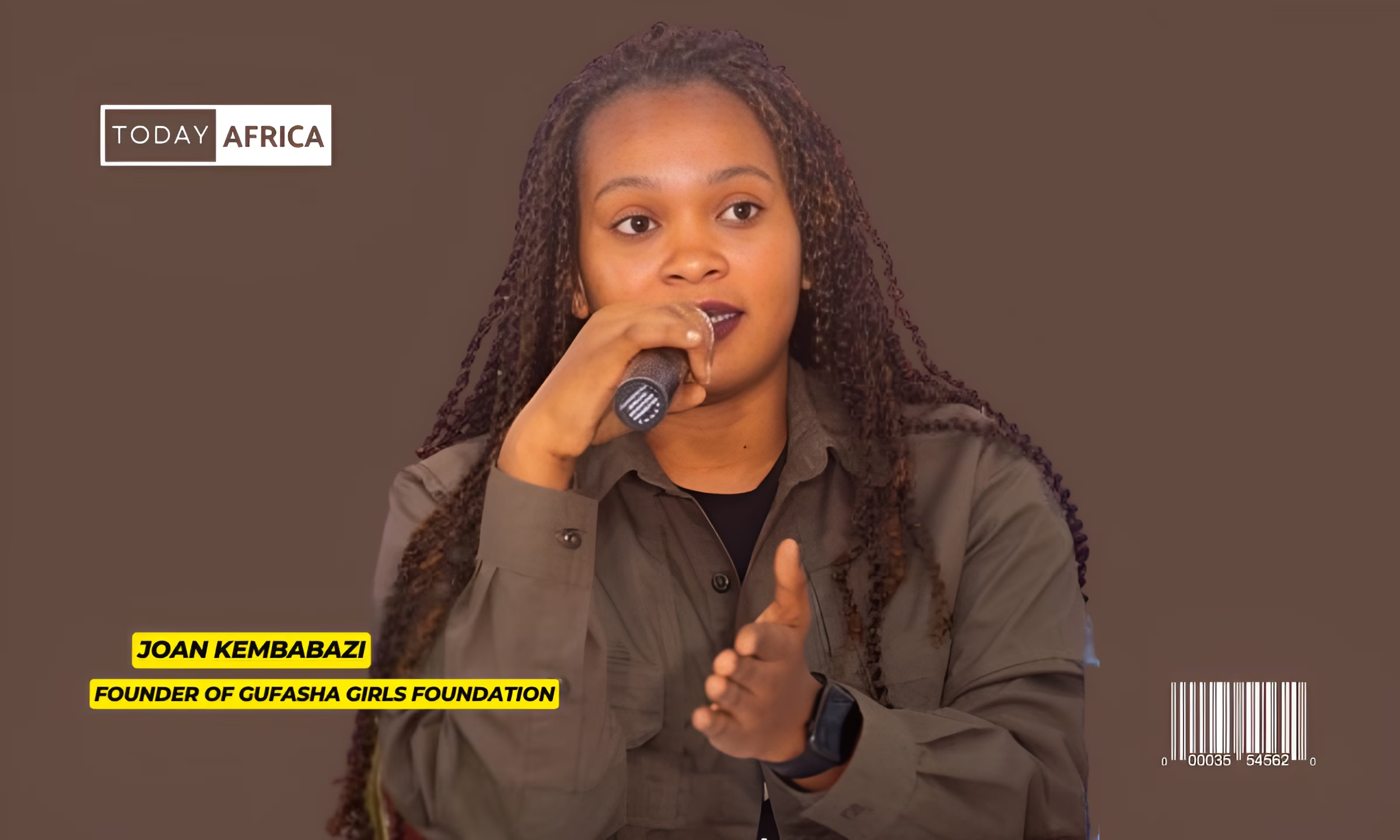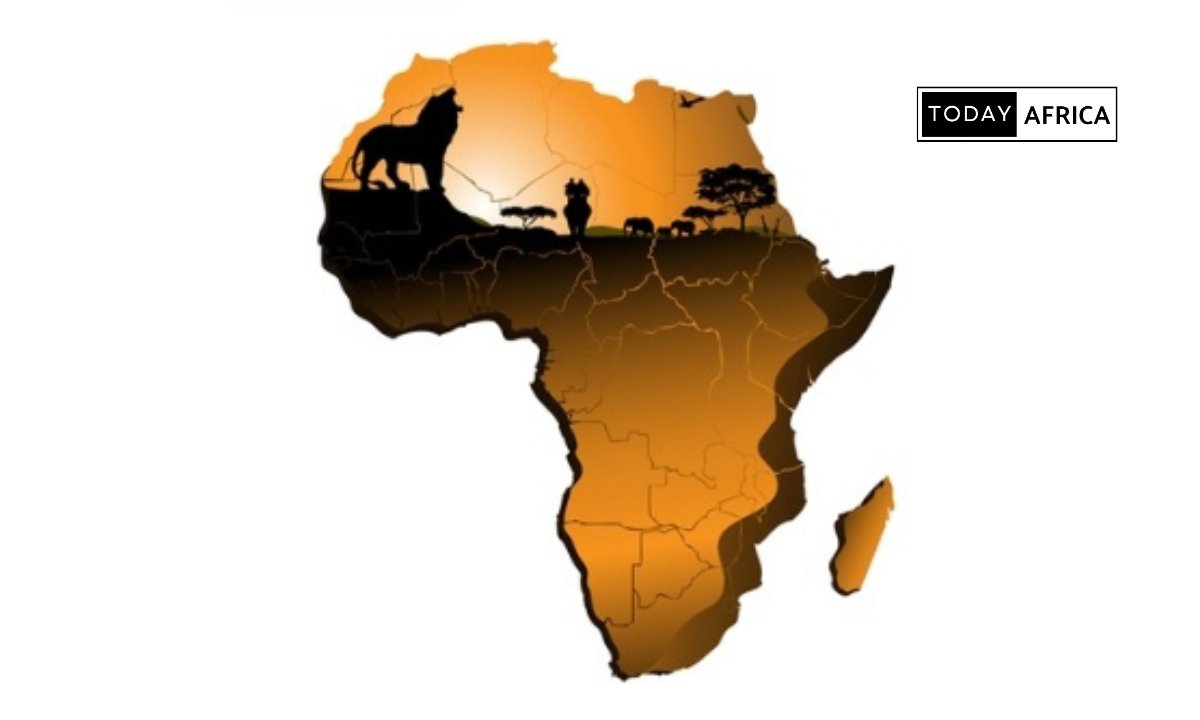There’s something deeply touching about the way Joan Kembabazi speaks.
Maybe it’s the softness in her tone when she recalls losing her best friend to child marriage at just 13, or the strength in her voice when she says, “girls can be anything.”
You can tell this isn’t a cause she stumbled into. It’s something that found her, shaped her, and never let her go. What began as a tragedy has become a lifelong mission to end child marriage in Uganda and across Africa.
That birthed Gufasha Girls Foundation, a community-based organization in memory of her friend, Gufasha Mureen, committed to promoting girls’ rights and education through advocacy, capacity building, and awareness creation.
Through it, Joan mentors young girls, supports their education, and works with communities to challenge traditions that rob girls of their futures.
In this conversation, Joan talks about transforming personal tragedy into purpose, confronting cultural resistance head-on, and the unshakable belief that every girl’s dream is valid.
Who is Joan Kembabazi?
When Joan Kembabazi talks about why she does what she does, she doesn’t rush. Her words settle heavy in the air, the way memories often do when they’re tied to pain.
Her story began with a friend, a 13-year-old girl, Gufasha Mureen, who dreamt of becoming a doctor, was married off to a 62-year-old man who paid two cows as dowry to her family.
“That’s where it started,” Joan says quietly. “From a personal experience.”
She was just a child herself when she realized how fragile a girl’s dreams could be. “So many girls in my community were facing such tragedies,” she explains. “It wasn’t just her.”
Her friend’s story became a mirror for thousands of others across sub-Saharan Africa.
“It pushes me forward,” she says. “It keeps me awake at night thinking about how this practice really robs girls of their childhoods, of their lives, of their futures.”
Joan went on to actualize her own dream of becoming an environmental scientist, but her friend never got that chance.
“Sometimes I look back and think, she would be here. She would be a doctor right now.”
She founded Gufasha Girls Foundation, named after her late friend, Gufasha Mureen, to mentor and empower girls, to keep them in school, and to remind them that their dreams are valid.
“Girls can be anything,” she says with the certainty of someone who has had to fight for that belief. “Society has put us in a place of less power, but that doesn’t mean we stay there.”
Her foundation works in the heart of rural Uganda, mentoring girls, training them in leadership, supporting their education, and, perhaps most importantly, reminding them that they matter.
When did you realize your grief became a calling?
“I think it was when I realized it wasn’t just about her,” Joan says.
She took time to sit down and look at all the girls in my community and the girls she started school with.
“When I looked deeper, the reason was always the same. They were forced into marriage.”
The pattern was painful but clear. Families believed education was a waste for girls.
“They’d ask, why are we spending money to send you to school when you’ll just get married?” Joan recalls. “That belief system destroyed so many futures.”
That was the turning point. What began as grief became awareness, and then action.
“That tragedy really opened my mind to start paying attention,” she says.
Read Also: Meet Emmanuel Osemudiame, the Doctor Using Tech to Fight Mortality in Nigeria
What does Gufasha Girls Foundation do and its programmes?
Gufasha Girls Foundation isn’t just about rescuing girls. It’s about rebuilding what child marriage tries to destroy dignity, confidence, and opportunity.
The foundation runs two major arms of work. One centers on the girls themselves: leadership training, education sponsorship, mentorship.
“We believe education is a powerful strategy to end child marriage,” Joan says.
The other focuses on the communities around them.
“Because the girls don’t live in isolation,” she explains. “They stay with parents, with boys, with leaders. So we have to work with everyone.”
There are programs for menstrual health and management, providing reusable pads and information to keep girls in school.

There are sessions on sexual and reproductive health, and partnerships with local clinics to give girls access to youth-friendly services.
And then there’s the community work, meetings with traditional, religious, and local leaders to challenge the norms that uphold child marriage.
“We respect culture,” Joan says, “but generations are changing.”
Every year, the foundation hosts a gala that brings the whole community together: leaders, parents, even local sports teams. “We use sports as a tool for mobilization,” she says. “And we always remind them: girls are supposed to be girls, not brides.”
How do you honour your friend’s memory?
“I see her in every girl we empower,” Joan says softly. “It still hurts that I wasn’t able to stand up for her when she was here.”
That guilt, she admits, has become her fuel. “It pushes me in this work. I don’t want to see any other girl go through what my friend went through.”
Every success, every girl who refuses marriage, every one who goes back to school, feels like a small redemption.
“That’s the emotion that pushes me every day,” she says.
What challenges have you faced?
Joan doesn’t sugarcoat it.
“Community work is hard,” she says. “Especially when what you’re fighting is a tradition, a norm.”
Convincing cultural leaders, often elderly men, that child marriage is wrong isn’t easy.
“They hold on to culture. It’s a mindset thing,” she explains. “And you can’t just walk into a community without first meeting the chief or the woman leader.”
Then there’s the problem of resources. The needs are huge, but the funds are limited.
“When you weigh the resources we have and the girls who need help, it’s heartbreaking.”
Still, she believes in moving “one girl at a time.” They make sure every rescued girl is supported, educated, and mentored, never sent back to the same home that forced her into marriage.

How do you sustain these girls rescued from child marriage?
Not all girls want the same thing. “Some want to go back to school,” Joan says. “Others are mothers and prefer to learn a skill.”
For those who choose vocational paths, the foundation partners with local women who teach tailoring and other crafts.
“After training, we help them start something for themselves,” she explains. “We can’t send them back to the families that pushed them into marriage.”
It’s a system built on trust and community partnerships, local chairpersons, women leaders, and anyone willing to host or mentor.
Related Story: How Tigist Kebede is Transforming Ethiopia’s Film Industry with habeshaview
How do you raise capital to run Gufasha Girls Foundation?
Money, Joan admits, is always a challenge. So they got creative.
“We make reusable sanitary pads,” she says. “Some are donated to schools and communities, but it’s also one of our ways of raising funds.”
The initiative doubles as both a social enterprise and a tool for empowerment, a small but sustainable way to keep their mission alive.

How are child marriage, poverty, and climate change connected?
“Child marriage is a poverty issue. It’s a climate issue. It’s a human rights issue,” Joan says.
In her village, everything depends on the land. When crops fail due to drought or floods, families lose their income, and girls become the first casualty.
“When the family hits a financial crisis, they start seeing the girl as a burden,” she explains.
School becomes optional, marriage becomes a solution.
“They’ll stop her from going to school to fetch water or firewood,” Joan says. “These issues are all connected.”
What do you convince a district leader about the impact of your work?
“We don’t convince anymore,” Joan says with a small smile. “Our work speaks for itself.”
Since registering in 2021, Gufasha Girls Foundation has become a trusted partner of the local government.
“We work with district officers, education officers, community development officers; their offices are always open to us,” she says.
They used to have to explain and persuade. Not anymore. “They’ve seen the impact. They guide us now.”
Read Also: How Alfi Oloo Broke into Product Design Without a Degree
Has someone ever confronted you before?
“Of course,” she says, laughing a little. “Especially the old men. The chiefs, the cultural leaders.”
She’s used to hearing, ‘Our culture says so.’ But Joan doesn’t flinch. “This is why we’re here, to change minds,” she says.
Her own life has become part of that proof. “I come from a community that didn’t believe in educating girls. But I graduated. I became Joan, a leader, empowering other girls.”
Still, the resistance is constant. “We face confrontation, pushbacks,” she says. “But we’re grounded.”

What’s one statistic about child marriage or girl education that shocks people the most?
Her tone hardens when she talks about the numbers.
“12 million girls are married off every year,” she says. “And 129 million are out of school.”
In Uganda alone, 34% of girls are married before 18. “That really scares me,” she says. “It makes me think that we need to move faster.”
She remembers how during COVID-19, countless girls were married or got pregnant and never returned to school.
“If we move slowly, these numbers will multiply,” she warns. “We have to move twenty times faster.”
What is the most rewarding reaction you have ever gotten from a girl who benefited from your program?
Her face softens when she mentions Angel. “She’s actually just next to me,” Joan says with a smile.
Angel’s story is one of persistence, a girl who stayed in school because someone believed in her.
“Just seeing her focused on her education makes me emotional,” Joan says. “It fulfills me.”
Angel’s confidence has become contagious. “She always says, I want to be this, I can do that,” Joan says. “That’s what we want. For girls to believe in themselves.”
She pauses, then adds quietly, “Sometimes it’s hard to believe in change when you come from a village that’s not even on the map, just joking. But she does. And that moves me.”

Where do you see Gufasha Girls Foundation in the next 5 years?
“I see it as a powerful organization,” Joan says, eyes lighting up. “Not just locally or nationally but globally.”
She imagines partnerships with UNICEF, Plan International, World Vision.
“But more than that, I see it protecting, supporting, empowering as many girls as possible,” she says. “I don’t want to limit us with numbers.”
Her dream is simple: that the name Gufasha Girls Foundation becomes synonymous with ending child marriage, a symbol of hope.
Related Story: Why Dr. Gozie Ezeh Started ‘SweetMom’ to Support First-time Mothers in Nigeria
What lessons have you learned in your journey as an activist against child marriage?
“Two things,” she says. “Change doesn’t happen overnight. And girls are powerful.”
She’s learned to be patient with transformation, to understand that changing mindsets takes time.
“All girls need is someone to unlock their potential,” she says.
What advice would you give to others who want to start their NGO or business?
“Let passion lead,” Joan says without hesitation. “Things won’t be easy. Running an NGO isn’t something handed to you on a silver plate.”
She talks about patience, about nurturing an idea the way you’d nurture a seed.
“Start small,” she advises. “You won’t begin at the top.”
And above all, find mentors. “This work can break you down if you’re not careful,” she says. “That’s why I always tell young people to seek guidance, to ask for advice. It’s how you stay strong.”

Read Also: Nonhlanhla Shembe on Why “Visibility is Currency” for Small Businesses
Contact or follow Joan Kembabazi:
Leave a comment and follow us on social media for more tips:
- Facebook: Today Africa
- Instagram: Today Africa
- Twitter: Today Africa
- LinkedIn: Today Africa
- YouTube: Today Africa Studio

















2 Comments
Really insightful piece!
Thank you for finding value in the article.
Comments are closed.